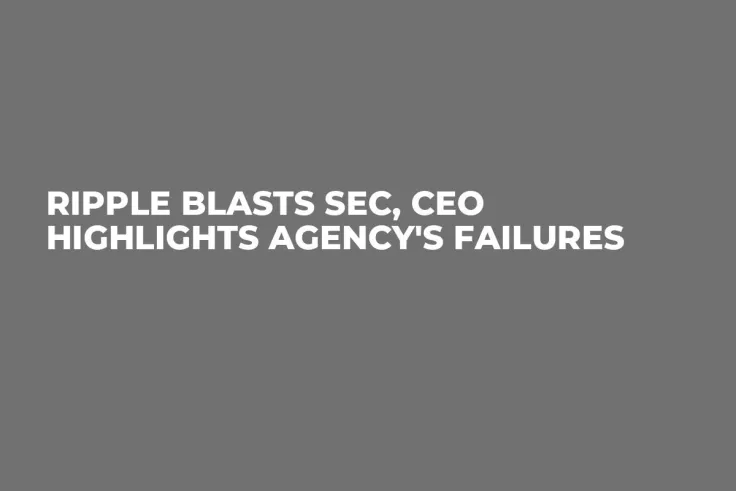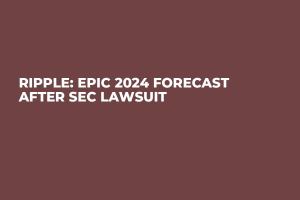
Disclaimer: The opinions expressed by our writers are their own and do not represent the views of U.Today. The financial and market information provided on U.Today is intended for informational purposes only. U.Today is not liable for any financial losses incurred while trading cryptocurrencies. Conduct your own research by contacting financial experts before making any investment decisions. We believe that all content is accurate as of the date of publication, but certain offers mentioned may no longer be available.
According to CNBC, Ripple CEO Brad Garlinghouse slammed U.S. Securities and Exchange Commission (SEC) Chairman Gary Gensler on Tuesday, calling him a "political liability."
The Ripple CEO spotlights the SEC's losing streak, stating, "I think Gary Gensler is doing the same thing over and over again, and he thinks that somehow he’s going to win in court. He has continued to lose in court."
"One of the definitions of insanity is doing the same thing over and over again and expecting a different outcome," Garlinghouse said, referring to what he perceives as Gensler’s ongoing anti-crypto campaign.
The SEC filed charges against three major cryptocurrency exchanges — Binance, Coinbase and Kraken — last year, alleging that they sold unregistered securities on their crypto platforms. The lawsuits are still pending.
The SEC filed a complaint against Ripple in December 2020, alleging that the company and its executives sold XRP coins through unregistered securities offerings.
Ripple scored a significant victory in the SEC litigation in July of last year, when a court ruled that XRP is not a security as a matter of law. In October, the SEC's request for an interlocutory appeal was also refused. In the same month, the SEC dropped all remaining charges against Ripple CEO Brad Garlinghouse and Executive Chairman Chris Larsen.
The Ripple lawsuit is now in the remedies phase, with all related discovery due for completion by Feb. 12 and accompanying filings to follow.
Meanwhile, Ripple recently filed a Motion for Extension of Time, asking for an additional two days, until Jan. 19, to answer the SEC's Motion to Compel.

 Gamza Khanzadaev
Gamza Khanzadaev Arman Shirinyan
Arman Shirinyan Alex Dovbnya
Alex Dovbnya